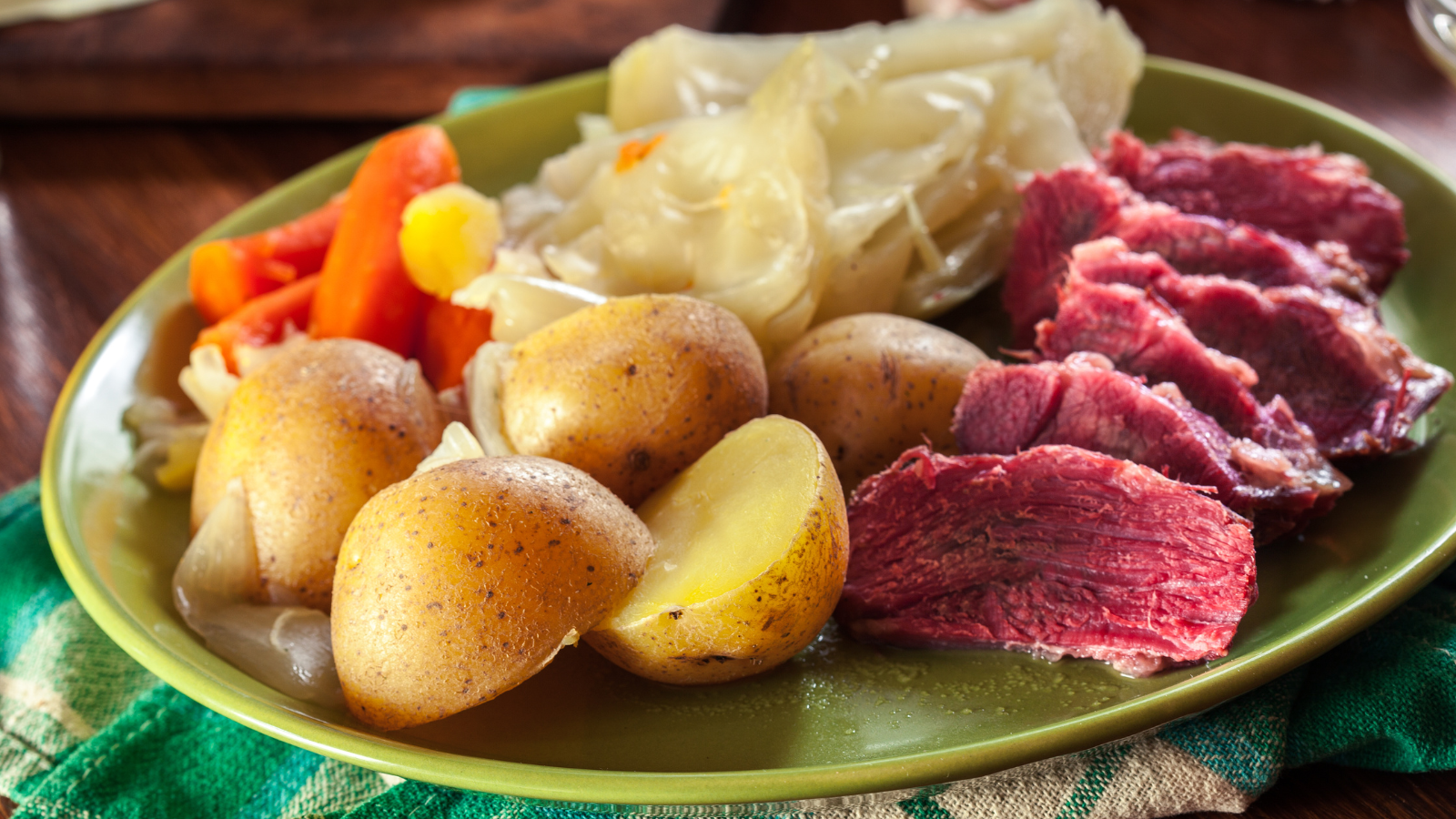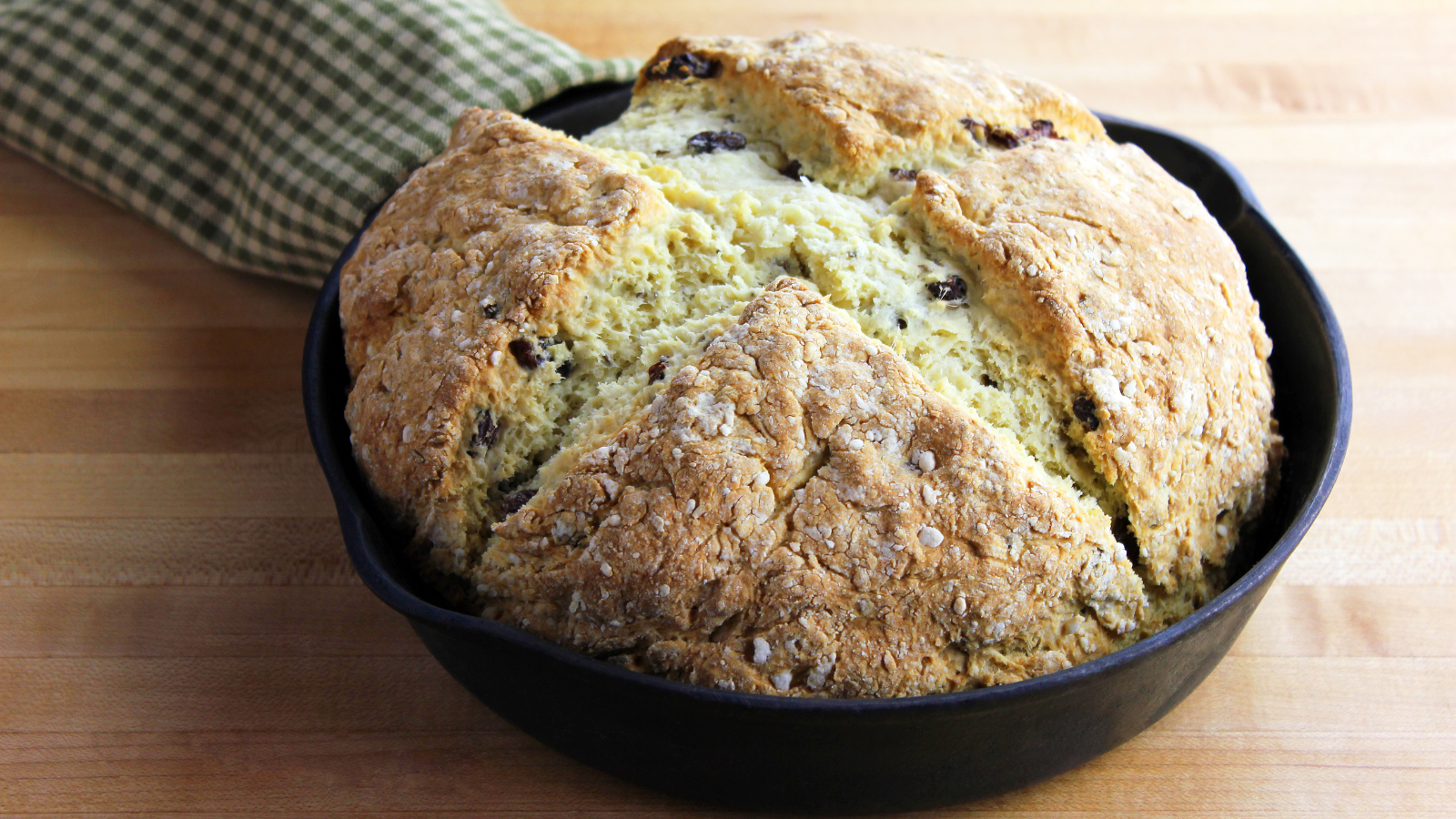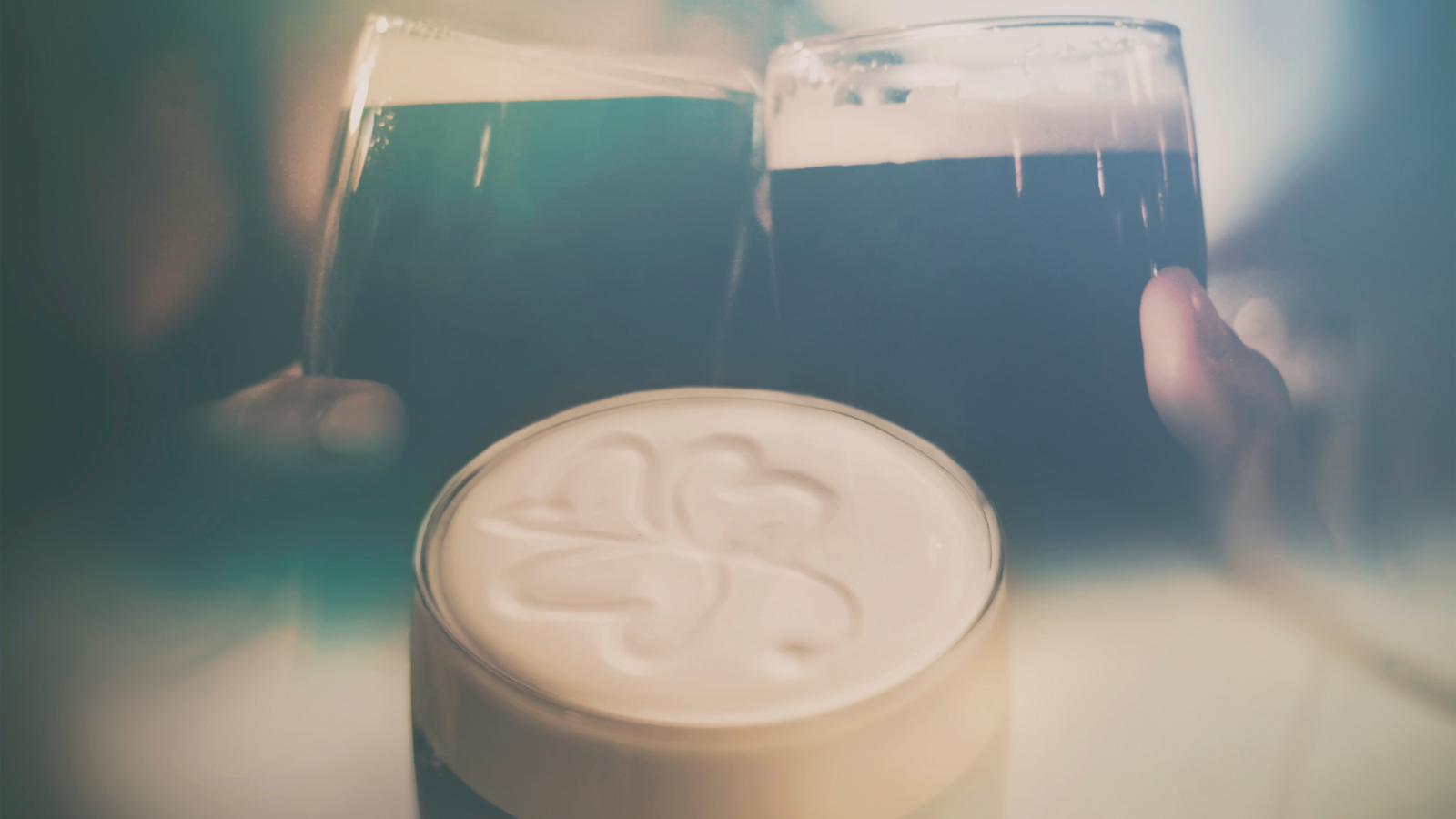ELEVATION NATION BLOG

St. Patrick's Day Is Full of Food and Beverage Traditions
March is a time for madness, and part of that fun includes the ubiquitous food and beverage holiday of St. Patrick's Day. For those of us with Irish heritage, we celebrate our roots. For those of us without Irish heritage, we celebrate those roots, too. The bottom line is we celebrate.
Part of the festivities includes food and beverage, of course. Whether it's a classic pint of Guinness with a plate of fish and chips or a decadent dessert with an Irish coffee, St. Patrick's Day foods excite us here at Elevation Nation. We believe a well-curated menu can elevate the St. Patrick's Day experience (and even provide some social media-ready photos!), offering patrons authentic Irish fare alongside beloved classics. So join us as we explore a few of our favorite Patrick's Day foods and beverages that are perfect for your menu.

Corned Beef and Cabbage
Corned beef has a long and winding history that led to it winding up on our plates in March. Though cows were initially considered a source of milk, after British influence cattle became an export commodity that began the journey to what we know as Irish corned beef. The Cattle Act of 1663 and 1667 restricted live cattle exports, making the salted beef known as "corned beef" a sought-after delicacy worldwide.
Despite its popularity abroad, many Irish citizens couldn't afford it, especially during times like the Great Potato Famine. The influx of Irish immigrants to the United States in the 19th and 20th centuries led to a resurgence in corned beef consumption, albeit in a different form, notably brisket, purchased from Jewish shops in places like Manhattan's Lower East Side, where Jewish and Irish immigrants were neighbors. Because brisket is a cut that needs to be tenderized, it was often salted and slow-cooked with cabbage, potatoes, and carrots.

Irish Soda Bread
In the early 19th century, soda bread emerged as a humble recipe, quietly circulating in publications across the United Kingdom and the United States. However, it wasn't until after the devastating Irish Famines of 1845-1852, which claimed one million lives, that Soda Bread rose to prominence as a practical response to hardship.
With the availability of wheat and foreign flour increasing post-famine, soda bread became a staple on Irish tables, utilizing simple ingredients like flour, salt, and baking soda. The adoption of sour milk or buttermilk as an acidic element made the bread more accessible and eliminated the risks associated with using hydrochloric acid. Despite misconceptions about its origins, soda bread's enduring legacy is rooted in the resilience of the Irish people and their culinary adaptability in the face of adversity. From famine-era survival food to a cherished part of Irish cuisine, soda bread remains a testament to the enduring spirit of the Irish people. And the team at Elevation Nation thinks it tastes pretty good, too.

Guinness
Yes, whisky is notoriously Irish, but a pint of the black stuff (though, technically, it's a very dark red if you look closely) is enjoyable any day of the year. Even more so on St. Patrick's Day! Sure, there are always those who will enjoy a kitschy green beer, but it's stout or bust for us. Just consider what the late Anthony Bourdain said about it:
"There are few articles of faith in my admittedly jaundiced worldview, precious few things that I believe to be right and true and basically unimprovable by man or God. This, however, is one of them: a properly poured beer or ale -- in my case, a hand-cranked Guinness -- in a clean pint glass of correct temperature is God's Own Beverage, a complete and nutritious food source, a thing of beauty to be admired, a force that sweeps away, for a time, all the world's troubles."
This iconic Irish stout has a rich history dating back to 1759 when Arthur Guinness founded the brewery at St. James's Gate in Dublin, Ireland. Initially producing a variety of beers, Guinness shifted its focus to the dark, creamy stout that would become synonymous with its name. The beer's distinctive flavor comes from roasted barley, giving it a deep color and complex taste profile. Over the centuries, Guinness has become one of the world's most recognizable beer brands, enjoyed by millions on St. Patrick's Day and beyond. Of course, here in Colorado and the southwestern states, you can also find some great local microbrews done in the traditional Irish style, as well.
Ready to see how having the right drinks can help increase profits?
Subscribe Here!
Lists by Topic
- Insider (16)
- Restaurants (15)
- Chef's Playground (12)
- Beverage (9)
- Trends (8)
- Bar (7)
- School cafeteria (7)
- Hospitality (6)
- LTI (5)
- Middleby (5)
- Steelite (5)
- Tabletop (5)
- Test Kitchen (4)
- TurboChef (4)
- C-Store (3)
- Coffee (3)
- CookTek (3)
- Glassware (3)
- COVID-19 (2)
- Concordia (2)
- Dinnerware (2)
- Front of House (2)
- Healthcare (2)
- Labor Savings (2)
- Lion's Wood Banquet Furniture (2)
- Take-Out/Delivery (2)
- American Metalcraft (1)
- Blodgett (1)
- Blodgett Combi (1)
- Bluezone (1)
- College & University (1)
- Concessions (1)
- Doyon (1)
- Eastern Tabletop (1)
- Follett (1)
- Globe (1)
- Grocery Store (1)
- Icetro (1)
- Imperial Range (1)
- Induction (1)
- Kloppenberg (1)
- MagiKitch’n (1)
- Middleby Marshall (1)
- News (1)
- Perfect Fry (1)
- Pitco (1)
- Product of the Month (1)
- Star (1)
- U-Line (1)
- Varimixer (1)
- Ventless (1)

